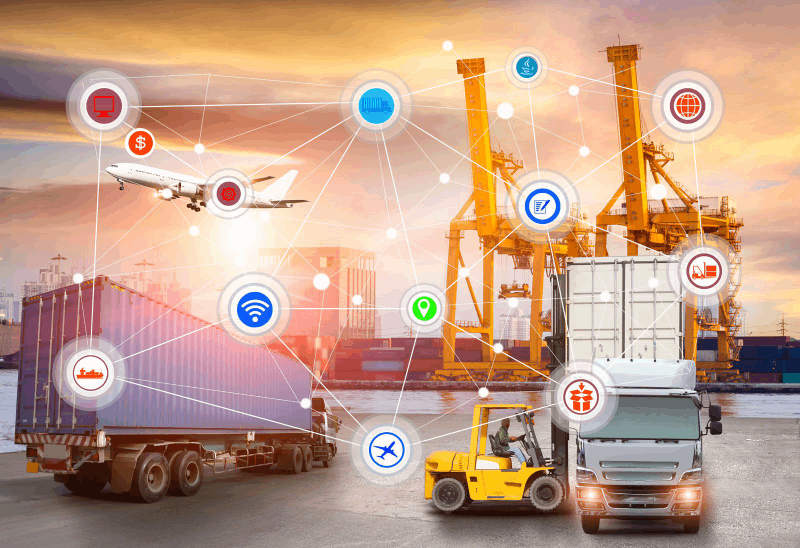Welcome to GLA! Leading the global logistics alliance.


Your location:Home > News > The 5 Benefits Driving the Shift towards Digitalization in the Freight Forwarding Sector
Time:2023-08-24 Publisher:Kevin Num:23185

The freight forwarding industry is a complex and dynamic sector that plays a critical role in global trade. Over the past few years, the industry has undergone significant changes, with digitalization being one of the most significant transformations. The adoption of digital technologies has brought numerous benefits to the industry, revolutionizing the way freight forwarders operate. In this article, we will explore the five benefits driving the shift towards digitalization in the freight forwarding sector in more detail.
Increased Efficiency
One of the most significant benefits of digitalization in the freight forwarding sector is increased efficiency. Traditionally, the freight forwarding process involved a lot of manual work, including data entry, paperwork, and other time-consuming tasks. However, with the adoption of digital technologies, many of these tasks can now be automated, reducing the time and effort required. For example, digital platforms allow freight forwarders to book shipments, generate documentation, and track shipments automatically, significantly reducing the need for manual intervention.
In addition, digital technologies such as artificial intelligence and machine learning can help freight forwarders optimize their operations, reducing errors and improving efficiency. These technologies can analyze data, identify patterns, and make predictions that enable freight forwarders to streamline their operations, making the entire process faster and more efficient.
Furthermore, the adoption of digital technologies has enabled freight forwarders to offer new services and capabilities to their customers. For example, real-time shipment tracking, automated notifications, and digital documentation are now standard features of many freight forwarding services. These digital capabilities have helped improve the customer experience and increase overall efficiency.
Improved Visibility
Improved visibility is another key benefit of digitalization in the freight forwarding sector. Traditionally, the freight forwarding process was often opaque, with limited visibility into the status of shipments. However, with the adoption of digital technologies, freight forwarders can now offer customers real-time visibility into the status of their shipments.
Real-time shipment tracking is now a standard feature of many digital freight forwarding platforms, enabling customers to track their shipments from origin to destination. This increased visibility allows freight forwarders to proactively identify and address any potential issues before they become significant problems, improving the overall customer experience. Additionally, the use of digital technologies enables freight forwarders to share information with customers more easily and quickly, improving communication and transparency.
Enhanced Security

The adoption of digital technologies has also brought significant improvements to the security of the freight forwarding process. Traditionally, the freight forwarding process involved a lot of manual documentation, which was prone to errors and security breaches. However, with the adoption of digital technologies such as blockchain and secure data transfer protocols, freight forwarders can ensure that their customers' information is protected and secure throughout the entire shipment process.
The use of blockchain technology, in particular, has brought significant improvements to the security of the freight forwarding process. Blockchain is a secure, decentralized ledger that enables freight forwarders to securely record and share information about shipments. This technology provides a tamper-proof record of all transactions, reducing the risk of fraud and improving overall security.
Greater Flexibility
Digital technologies have also brought greater flexibility to the freight forwarding industry. With the ability to access real-time data from anywhere at any time, freight forwarders can adjust their operations quickly to respond to changing market conditions. This increased flexibility allows freight forwarders to be more agile, responding more quickly to customer needs and changes in the supply chain.
Digital technologies have also enabled freight forwarders to offer more flexible services to their customers. For example, digital platforms can provide customers with a range of options for shipping their goods, such as different modes of transportation or alternative routes. This increased flexibility enables customers to choose the shipping option that best meets their needs, improving the overall customer experience.
Cost Savings
Finally, the adoption of digital technologies has also brought significant cost savings to the freight forwarding industry. By automating many of the manual tasks involved in the freight forwarding process, digital technologies have reduced the need for human intervention, resulting in lower labor costs.
In addition, the use of digital technologies has enabled freight forwarders to optimize their operations, reducing waste and inefficiencies. For example, real-time shipment tracking can help freight forwarders identify the most efficient routes and modes of transportation, reducing fuel and transportation costs.
Furthermore, digital technologies have enabled freight forwarders to offer more competitive pricing to their customers. By reducing their own operating costs, freight forwarders can offer lower prices to customers, helping them stay competitive in a crowded market.
Conclusion
In conclusion, the adoption of digital technologies has brought significant benefits to the freight forwarding industry. Increased efficiency, improved visibility, enhanced security, greater flexibility, and cost savings are just some of the benefits that digitalization has brought to the sector.
As the industry continues to evolve, it is clear that digital technologies will play an increasingly important role in the future of freight forwarding. Freight forwarders that embrace digitalization and invest in digital technologies will be better positioned to compete in an increasingly competitive market and provide their customers with the high-quality services they expect.
Prev:Welcome! Membership Renewal from Switzerland ——NOVA TRAFFIC LTDNext:Welcome! New Golden Member from Cote Divoire —— APPROVISIONNEMENT MARITIME ET TECHNIQUE
Recommended Membership
Latest News